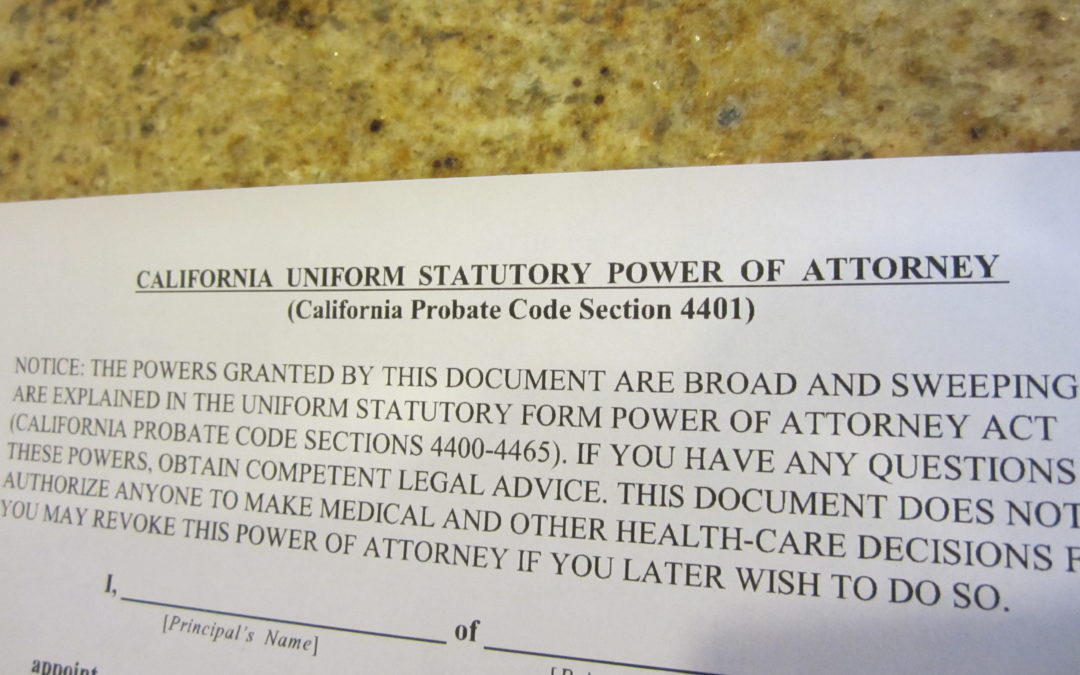I had a post before about what happens in California to your will after you get divorced. Many people have their spouses named in their will in some way (e.g. to be executor). In nearly all cases, I would imagine you don’t want your ex-spouse to have control over your estate when you’ve died.
Today, though, I’m going to go over a similar question: what happens in California to your Power of Attorney or Durable Power of Attorney document after you’ve gotten divorced? As with wills, many people name their spouses as their power of attorney agent or durable power of attorney agent and, as with divorces, most people likely don’t want their ex-spouses having control over them once the divorce is finally over.
The relevant law here is going to be Section 4154 of the California Probate Code, section (a) of which states: “If after executing a power of attorney the principal’s marriage to the attorney-in-fact is dissolved or annulled, the principal’s designation of the former spouse as attorney-in-fact is revoked.”
Section 4154(b) then goes on to say that if divorce or annulment of the marriage was the only reason why the power of attorney was revoked, then remarriage of the principal and attorney-in-fact will reinstate the power of attorney and the attorney-in-fact’s authority under it. If, however, the power of attorney was revoked for other reasons too and the principal and attorney-in-fact just happened to get divorced at the same time, then them remarrying does not reinstate the power of attorney and the attorney-in-fact’s authority.
If you compare what happens to a will under section 6122 of the California Probate Code and what happens to a power of attorney under section 4154, you’ll detect a similarity — namely, that a lot of stuff happens automatically in California once a divorce occurs.
As always, this post is not meant to be a comprehensive explanation of divorce, powers of attorney, or the California Probate Code. If you’re outside of California or your case doesn’t involve California at all, it is likely that none of what I have described will apply to your case. What should apply to your case is this: in general, the best way to determine what to do in your particular situation is to find a lawyer in your area to consult with.
Andy Chen
Latest posts by Andy Chen (see all)
- Management of a California Limited Liability Company (LLC) - July 8, 2025
- Record-keeping for a California Limited Liability Company (LLC) - July 7, 2025
- Member Classes in a California Limited Liability Company (LLC) - July 6, 2025

